
Jayda G: sea change
Jayda G has gone from being an underground house and disco phenomenon to remixing Taylor Swift and Dua Lipa, receiving Grammy nominations, and DJing for huge audiences. She speaks to Ria Hylton about unifying club crowds, climate activism, and her deeply personal and pop savvy new album for Ninja Tune, ‘Guy’
“Jayda G is a pretty one-dimensional character that I’ve created — talking about yourself in the third person’s fucking weird,” Jayda Guy trails off, bemused at the idea. It’s mid-March and we’re 90 minutes into an interview at her record label’s head office in South London, talking about her new album ‘Guy’. She continues the thought after some laughter, wanting to hone in on a point before we’re done. “Something that can happen to a lot of people working in entertainment, you create a barrier of how much you actually give your audience. Jayda G, she’s very happy, always dancing, having a good time, talking about the environment, lots of positivity. This is my attempt to be like, there’s more to me than just that.”
Jayda G has been riding a wave of underground success for years, with crests tipping her into mainstream consciousness. Her breakout Boiler Room performance in 2017 set in motion a series of career-defining moments. In 2019 she released her debut album ‘Significant Changes’, a funk and post-disco indebted record that made the environment the heart of its thesis. ‘Both Of Us/Are U Down’, an EP co-produced with Fred again.., came a year later, landing Guy her first Grammy nomination, and she’s had her foot to the pedal ever since — a DJ-Kicks mix, a collab with previous DJ Mag North America cover star Aluna and infectious pop remixes for the likes of Dua Lipa and Taylor Swift came thick and fast. But this year, Guy’s preparing for the release of her most personal project yet, an album inspired by the life and death of her father, who passed away 23 years ago. As with her first long play, ‘Guy’ has a clear through-line, but the wandering and delightfully off-kilter moments on ‘Significant Changes’ have been replaced with tight verse-chorus cuts and a production high in definition, giving the album an overall radio-friendly feel.
The record might be made for easy listening, but its raw material comes from hours of video recordings Guy’s father made before his untimely death — a far cry from the Jayda G we’ve come to know, an underground DJ famed for her joy-filled, life-affirming sets. Why death, and why now? “It can be a heavy subject — depending on how you feel about death, it can be a really hard thing to discuss, let alone write songs about it,” she explains, “but looking at where I come from and giving that to everyone else, I hope it creates a space for people to do the same within their life. If the album has a message, it’s that people aren’t alone.”
Fast-forward a week and we’re at The Old Baths, a 1930s Art Deco building 10 minutes north of Hackney Wick station, and where Jayda G is making her third Boiler Room appearance. It’s a world away from her first Boiler Room in 2016, when she played a mostly vinyl mix at Boiler Room’s London office, or her main stage performance at Dekmantel a year later, spinning to a crowd of thousands. In that 2017 set she opened with ’70s R&B, ’80s boogie and Latin disco before delving into her own catalogue of introspective 4/4. The DJ shifted gears again with pumping ’90s house by way of New York, a track by Lindstrøm under his Slow Supreme moniker, and some spiritual house courtesy of Detroit. She played without fear, and in true Jayda G style, she belted every track.
This time around, Guy hits the ground running, playing pumping 4/4 from the start and is not too long in unleashing ‘Circle Back Around’, a purpose-built banger and the first release from her new album. The Grammy-nominated ‘Both Of Us’ follows directly after, hyping the crowd as soon as the first chord strikes. The set grows more rapturous with tracks like Floorplan’s ‘We Magnify His Name’, and by the time she drops her remix of Taylor Swift’s ‘Anti-Hero’ even the Boiler Room crew behind laptop screens are bobbing their heads. This is straight up, heart-warming fare — a set impossible not to love, one designed to leave you in a better mood than when you arrived.
Back at Ninja Tune’s head office, Guy is feeling a little jet lagged. International gigs have her playing to superclub-size audiences most weekends, but we get straight into the main topic of discussion — her ‘Guy’ album. “The main theme of the album is, you have a choice,” she tells DJ Mag. “Shitty things happen in life — I’m not trying to negate that, shit is hard — but you have a choice of how that’s going to inform you going forward.”
This idea, that your quality of life is defined by how you respond to difficult moments, not the moments themselves, is something she’s keen to drive home, referencing work by Brené Brown, an academic famed for her 2010 TEDx Talk on vulnerability. “You have your goals, you have your pathways and the third one is agency — the power and control you yourself have over how you decide to move forward,” she says, looking up from a Brown quote in her phone. “And that’s hope — it’s such a big theme that keeps coming up in my life.”
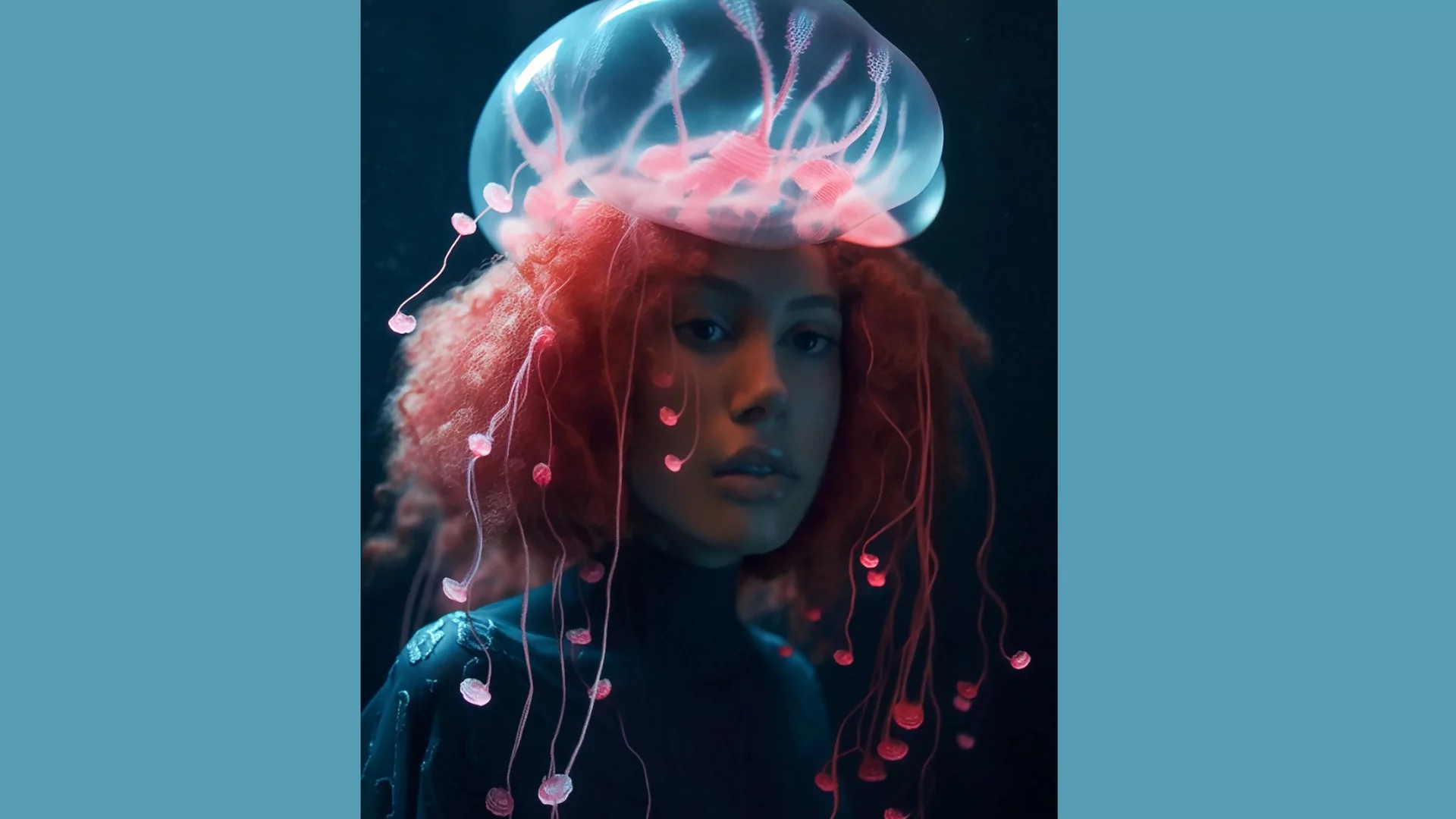
“The main theme of the album is, you have a choice. Shitty things happen in life — I’m not trying to negate that, shit is hard — but you have a choice of how that’s going to inform you going forward.”
Jayda Guy is the fifth and final child of William and the first of Leora. Raised in Grand Forks, British Columbia, a picturesque town with a population of 4,000, she grew up in a house her parents built, exposed to different musical tastes — jazz, classical, opera, blues — and driving to concert and musical halls hours out of town. “My parents really made a conscious decision because they came from such different places than what Grand Forks had to offer, that they wanted to try and show me the little bits they could that were outside our small town.”
As a kid, Jayda would sit with her dad and go through a CD catalogue, selecting records for him to buy, tracks that would form the backbone of mixtapes for family road-trips. William also built a system to play music throughout the house, making sure every room was filled with the warm sounds that reminded him of home. “We’re a modest family — my mum and dad somehow put together enough money to even build the house — so this was not some high-end system we’re talking about. It was a wires going along the walls and tucked beneath the carpet kind of vibe.”
It was through her sister that Guy’s love for disco grew, and her brother, who worked in the music industry and got CD promos through the post, turned her onto ’90s R&B and artists in the emerging neo-soul sound. As a LimeWire kid, she spent most of her after school hours building her own music catalogue — she still has the odd AOL watermarked track from those days. “I was obsessed — the fact that I could get music for free blew my pre-teen mind,” she laughs, holding her hands between her temples.
But grief struck early on in the Guy household. William was diagnosed with cancer, and by the time he passed, Jayda had just turned 10. ‘Guy’ takes the 11 hours of videos he made when he learned his cancer was terminal as its starting point. Co-produced with Jack Peñate, with contributions from Ibeyi’s Lisa-Kaindé Diaz and Ed Thomas, and with 1960s America providing much of the backdrop, the album is built around key moments of change in William’s life: joining the army during the Vietnam war, learning of his first wife’s infidelity, getting caught up in the 1968 Washington, DC riots. These private moments of revelation and betrayal tap into broader themes — alienation, hope and choice. “My father wanted something better for himself, and so looking back at his life, understanding the position I’m in because of those really conscious decisions he made, is a big theme.”
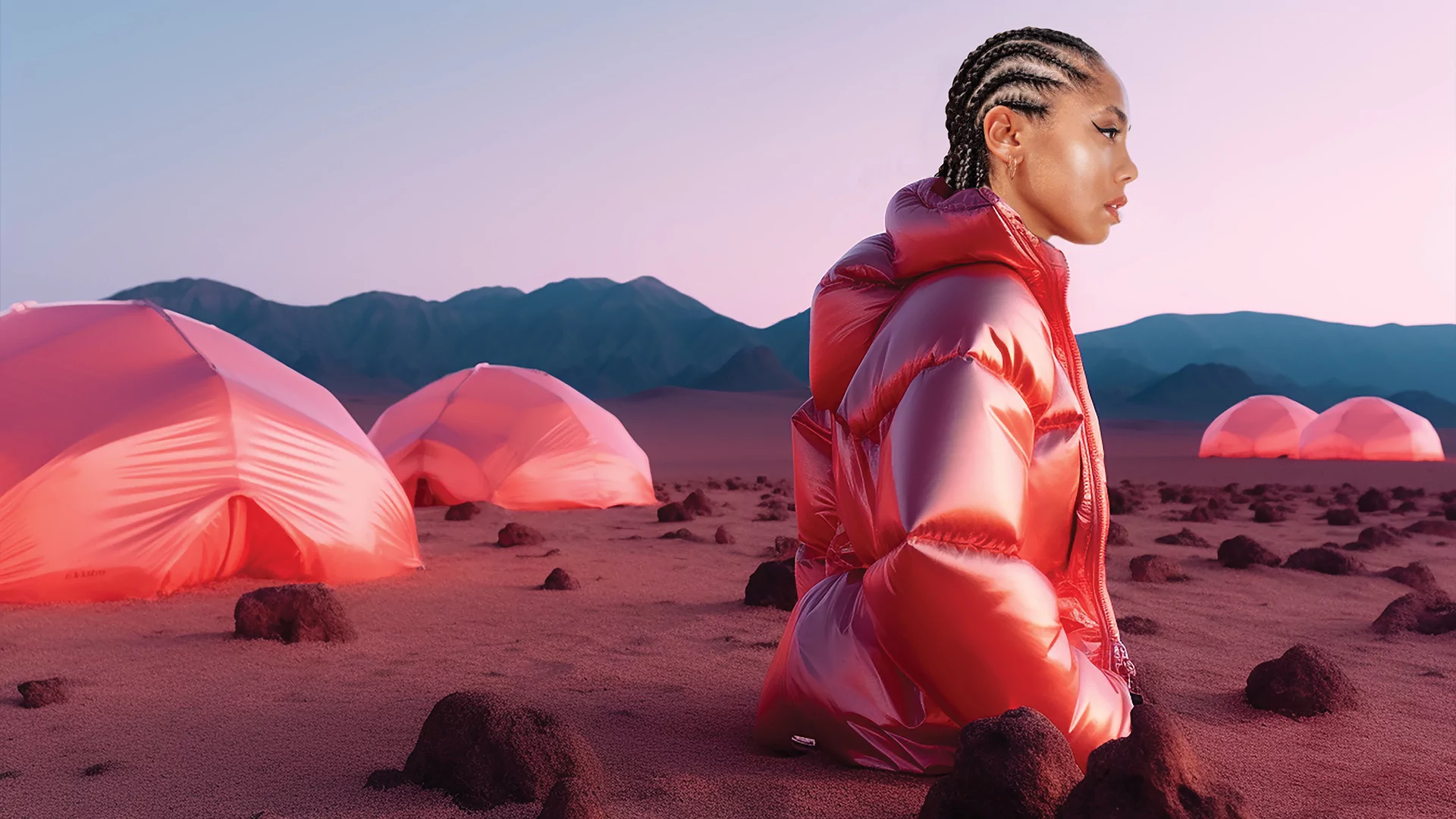
‘Blue Lights’, the album’s second single, takes its cue from a particular night where Guy’s father found himself locked out of his place and caught up in the 1968 riots over Martin Luther King Jr.’s assassination. Guy Sr. spent the next three days sleeping outdoors and evading the police, and it proved to be a real turning point. He had joined the army, like many others, as a way out of poverty, but by the time of King’s death and the state of the Vietnam War, he was feeling less sure about his decision. “He was just really struggling with the ideology of what the military represented at the time and what he was learning about himself as a Black man in America.”
Guy Sr. headed north to Canada not long after and began a new family with Leora. By his early forties he was back in school, studying social work. It proved to be another turning point, for him and his family. “It was really the beginning of him starting to look at himself and really understanding more of who he was and why he was the way he was.” As part of the course, teachers asked all the students to change one thing in their life. “He quit smoking and it changed everything. He really started to work on the relationship with my mum.”
‘Guy’ is rich with earworm melodies and feels like a clear departure from the artist’s earlier productions. Early Jayda G music felt more raw, wonky and retro in its leanings.
The tracks were sometimes playful, other times brooding, and had lots of throwback appeal. The forlorn chord progressions and lyrical hooks on ‘Blue Lights’ and ‘Circle Back Around’ feel consciously anthemic, made for the big room.
But when not behind the decks, Guy is more likely to go see live acts, artists pushing socially conscious ideas through song. Most recently she saw Kendrick Lamar — her first stadium-sized concert since she was a teenager — and was blown away by the crowd atmosphere. “I love it when you’re in a venue and everyone’s a huge fan,” she shares. “That was an experience, just seeing everyone knowing and singing the lyrics to a song — and that’s what I’m always trying to achieve, that heart-bursting oneness with the room.”
Guy’s pop sensibility shines through on her new release — only one track breaks the four-minute mark — conjuring the kind of audience energy you’d expect from a mainstream artist. Her tracks are laced with big drops and wistful melodies primed for crowd participation — rousing, unifying moments, perfect for the social media age. What has remained, however, is that spacious quality unique to her sound. How has the crowd been responding to the new material? “It’s been really heart-warming,” she replies. “I first played ‘Circle Back Around’ at New Year’s and I was so nervous. It’s so nerve-wracking, playing your tracks — especially when no one knows that it’s you and when it’s new. You just hope that people engage with it. And when they don’t, it’s kind of like a kick in the gut, but most people are hands-in-the-air loving it.”
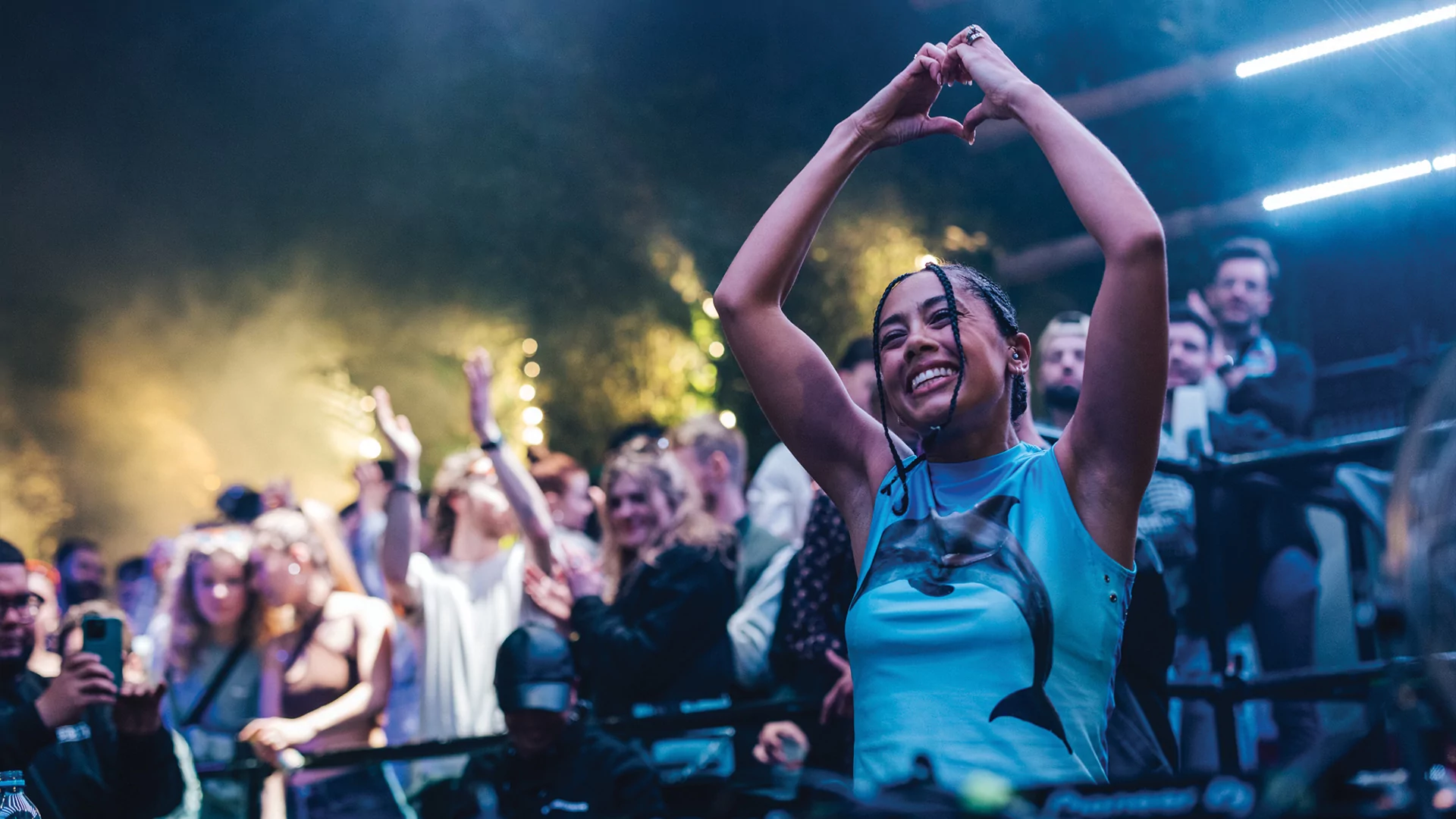
“I love it when you’re in a venue and everyone’s a huge fan… Just seeing everyone knowing and singing the lyrics to a song — and that’s what I’m always trying to achieve, that heart-bursting oneness with the room.”
In the mid-’10s Vancouver was becoming known for its murky, lounge-like take on house. Inspired by early deep 4/4, this introspective, heads-down music put a new generation of producers on the map — Jayda G was one of them. Her early offerings came via influential Vancouver label 1080p, Melbourne’s Butter Sessions, and her own Freakout Cult label, launched with DJ Fett Burger in 2015. She leaned into collabs with friends quite early on too. 2015’s ‘NYC Party Track’, co-produced with Burger, laid down a funk-infused groove with a beefy bassline and off-grid synths — like much of her later work, it retains an analogue feel. With vocalist and friend Alexa Dash, Guy got more playful, laying tongue-in-cheek lyrics over disco-inflected rhythm sections with raw basslines.
She moved outside her usual wheelhouse in her collab with close friend Laylay, offering a tropical, chuggy number in the form of ‘Monroe Bumpa’. Guy’s solo feats were equally vibrant and off-kilter. With first solo EP ‘Jaydaisms’, she brought a plaintive quality to her productions. ‘Rishikesh’, a ruminative number, was a standout track that got much early play. Follow-up EP ‘Sixth Spirit Of The Bay’ brought a muscular, aqua-funk house sound, with tracks like ‘Fathom Five’ and ‘Cascabel’.
Guy’s first international tour — London, Dublin, Madrid and Glasgow — came in early 2016, where she played in kitchens and gnarly basements, venues where the ceiling looked like it might fall in. She remembers a particular booking by 12th.isle, a left-field record label running out of Glasgow, which invited her and fellow Vancouverite LNS to play at live music venue Nice N Sleazy. “I remember them [the promoters] putting tables at the front of our booth and we were like, ‘Oh, why are you putting tables there? We want to be close to the crowd,’ and they were like, ‘this is for your protection’. It got so fucking rowdy in there. At one point this girl got on top of the table, her eyes were as big as saucers and she just screamed in my face.”
By mid-2016, opportunities abroad were coming in thick and fast. Guy looked on as peers flew to Europe, struggled to find short-term accommodation, then ventured home, only to do it all over again. British Columbia had nurtured her love of the underground, but it was becoming clear to everyone that her future lay in Europe. “I don’t know if you’ve made that 12 hour journey but it’s not fun,” she says, deadpan. “The Vancouver arts and culture scene is my beginning, but you have to be available so you can take charge of those opportunities.” Guy packed up and flew east.
Her first stop was Berlin, where she lived for close to four years. She doesn’t go into details, but the city proved a tricky place to call home. “I found it hard, I’m not gonna lie,” she says. “It wasn’t my place. I think everybody’s got their spot, a city that speaks to them, and it just wasn’t really for me.” By 2019 she’d had her fill, and London was calling. Ninja Tune, who she’d signed with for her first album deal, was in the capital, as was her BBC Radio 1 residency.
The UK’s humour and general way of life mirrored much of the Canadian culture she’d left behind (the Canadians are known for their kind, non-confrontational satire and Guy is dripping in it), but an early memory of London, when she first visited the city aged 19, also played a part in her decision to move. Guy was struck by the number of bi-racial people she came across, something she’d had no experience of growing up as the only Black and Jewish girl in her town.
“I had been to New York and such, but you don’t see a lot of mixed people,” she explains. “When I came here I saw myself so much, and that as a teenager made a big impression. And I really feel it now — making a choice of choosing a place to see yourself. Now when I’m not in a place [like that], I really notice it and every time I come back I’m like...” she leans back letting out a deep sigh, followed by a barrel of laughter.
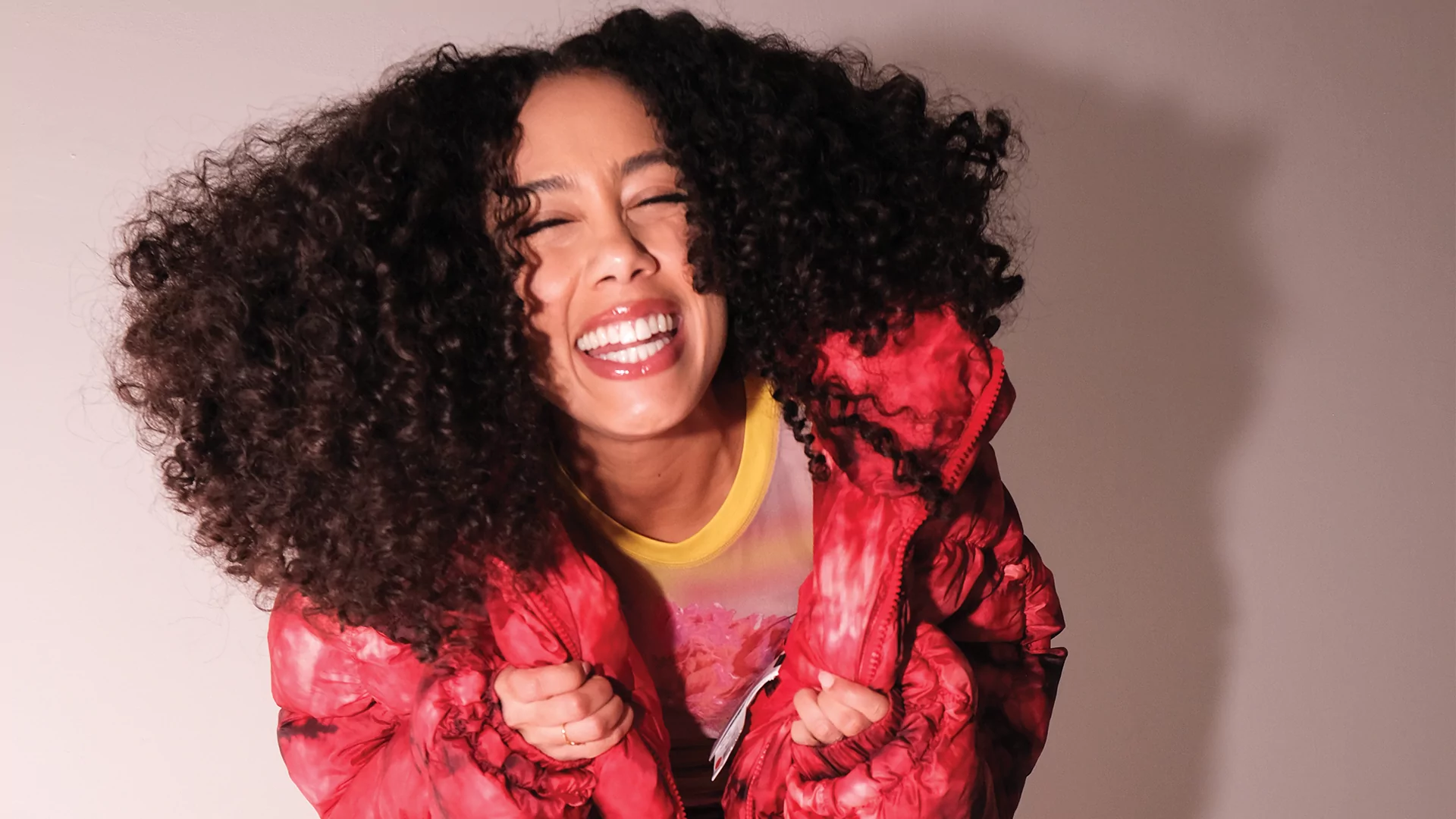
Decks and production aside, Guy has become increasingly known for her climate activism. In early 2019 she launched JMG Talks, a platform for early-career scientists to share their research with the public, and ‘Significant Changes’ was dedicated to raising awareness about climate change. But her schedule has her in the air most weekends, travelling to places as far flung as Brazil one month and Egypt the next. How does she square this with her views on the environment?
“The reality is, I travel for a living,” she opens. “I think a lot of artists are scared to talk about the environment because they’re worried about the backlash.” Guy uses carbon-offset programmes to counter greenhouse emissions caused by her travel, and tries to plan continental tours when further afield. “The pros are that you’re doing something,” she offers. “But the cons are that it’s not enough.” And what would she say to those who claim the carbon offsetting sector is merely a new tool for greenwashing? “I just disagree. I think it’s just us trying to figure out a better way of doing this. If I give money back to a programme that’s going to be making some sort of dent in the output of carbon, I’ll do it. I don’t have all the answers, I’m just figuring it out like everyone else, but I think the biggest thing is just being aware, being conscious of what is happening and the very specific ways that this system is built.”
On Guy’s Instagram, there’s a photo of her kissing a sea lion from her time working at the Vancouver Aquarium. In another she’s holding a snake in a tube, a picture taken from her time in the field researching Massasauga rattlesnakes. You’ll also find a pic of her snorkelling underwater in Hawaii, taken from time researching the eating habits of sea turtles. By the time she was finished with her master’s degree, she’d been in academia for a good decade, researching and writing about all manner of environment-related topics. Her love of science shines through when she talks about the environment, but broader access to academic research has always been a driving concern for her, hence the launch of JMG Talks.
More recently, Guy has taken on a new project, fronting a feature-length documentary on blue carbon. “Blue carbon is made up of three ecosystems: mangrove forests, saltwater marshes, and seagrass meadows, and all these ecosystems are really good at pulling carbon out of the atmosphere and putting it into the ground.” These ecosystems fringe all the continents — excluding Antarctica — and can absorb more carbon than tropical rainforests. It takes her to coastal countries like Senegal, speaking with people on the frontlines of climate change.
“That’s a big part of what I keep talking about in the film. It’s not [abstract], it’s here. The weather is changing, the sea levels are rising, the fresh water table is being infiltrated by saltwater.” She highlights Hurricane Katrina as an example, whose impact on the Gulf Coast would have been less destructive if not for the increases in rainfall, brought about by climate change. “What happens when you get rid of certain ecosystems and you put in a dike and then a huge hurricane comes in and rips through the entire city, and doesn’t just demolish buildings but makes significant changes to the actual soil everyone is living on? That’s the biggest thing the film is trying to do, show that it’s not as abstract as some would like you to believe.”
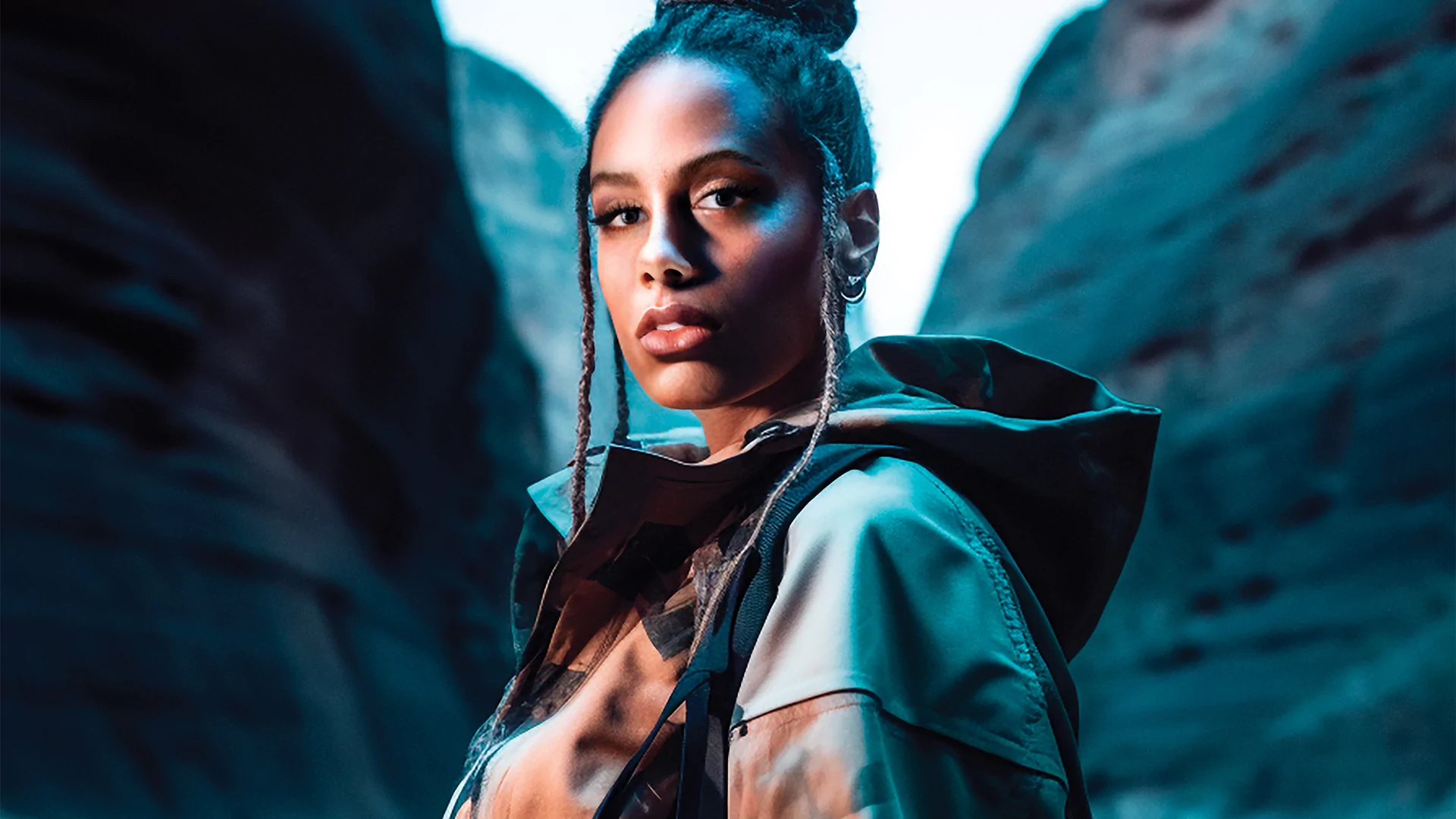
Back in music, one thing that’s changed over the years is Guy’s DJing style. You sense from her earlier mixes that she loves a slow-burn set. Her BBC Radio 1 residencies showed off the range of her tastes: reggae, Brit funk, classic soul, Italo pop and Afrobeat all feature alongside the Chicago and New York house cuts that she’s known for. But as the crowds have got bigger — and she lives for a satisfied dancefloor — Guy has had to switch things up a little. “That’s a huge change actually — there are certain tracks that I just don’t play when I have big room sets.”
Those slow, soulful openings she was known for have been replaced with club-ready disco and old skool 4/4 to hit the ground running. Jayda G has always built sets with these peaks in mind, but post-pandemic, she senses more of a desire for levity on the dancefloor. “I think people want lighter things for sure, to lose themselves in the music, me included,” she says, adding: “I think there’s a lightheartedness to the scene, but then again I’ve always had that approach. For me it’s more about getting into a deeper place within yourself.”
But uniting audiences of the size she now plays for is “really hard”, she explains. “You just aren’t going to get to the people in the back. It took a long time for me to figure out. There’s a delay effect. People in the front, they know what’s going on, they react and then it ripples. Sometimes the people in the back are the ones dancing the hardest, but they’re heads-down dancing, not hands-in-the-air engaging with you.”
Another change she’s noticed is the number of women on her line-ups. “In those early days LNS was a real sister for me,” she says. “There just weren’t a lot of girls and we were in Vancouver, and it was such a boys’ club. Sisterhood, I’m always searching for that. We’re looking after each other. If you’re seeing other girls around, just checking in — shit is crazy in clubs. I used to go everywhere by myself and it got to a point — and this speaks to how hard it is being a female DJ — I have been in so many situations that are just a bit dicey. You’re aware, you’re clocking certain situations, because you have to, you have to be aware of your safety and the people you’re around. And it got to a point where that was becoming more of a thing and I was really lonely on the road. But now I have a buddy and now it’s really fun.”
This new generation of DJs who play with a similar, unguarded energy behind the decks weren’t around in the numbers we now see when Guy first started. “I play with Ruby Savage a lot — she’s my main girl that I go back-to-back with. I don’t go back-to-back with many people, but I will with her.”
Having been in the industry for close to a decade, what are her observations of the scene? “It’s so funny you ask, because I was literally just thinking this the other day, I was playing a show in Leeds with Tarzsa and she was mad, cool.” Her eyes widen a little at the memory. “It made me think — that just did not happen. Rarely someone opening for me would be a woman, and rarely would she be a woman of colour. So that’s becoming more of the norm — so things are changing in small increments and we gotta celebrate the little wins, you know?”
With her rise to prominence, Guy has undoubtedly been a contributor to that change, inspiring a new generation of DJs who play without fear, dance with the crowd, open and full of heart.
'Guy' will be released via Ninja Tune on 9th June. Pre-order it here.
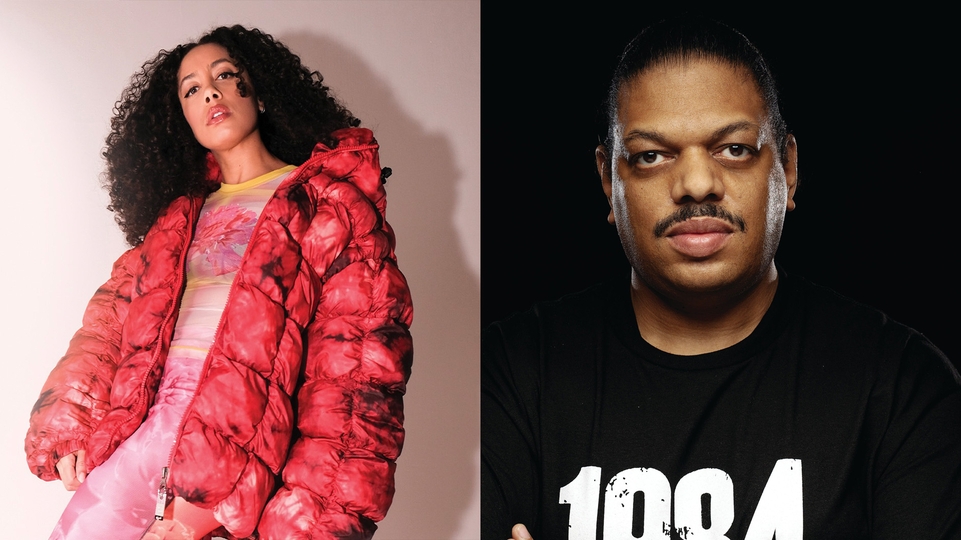
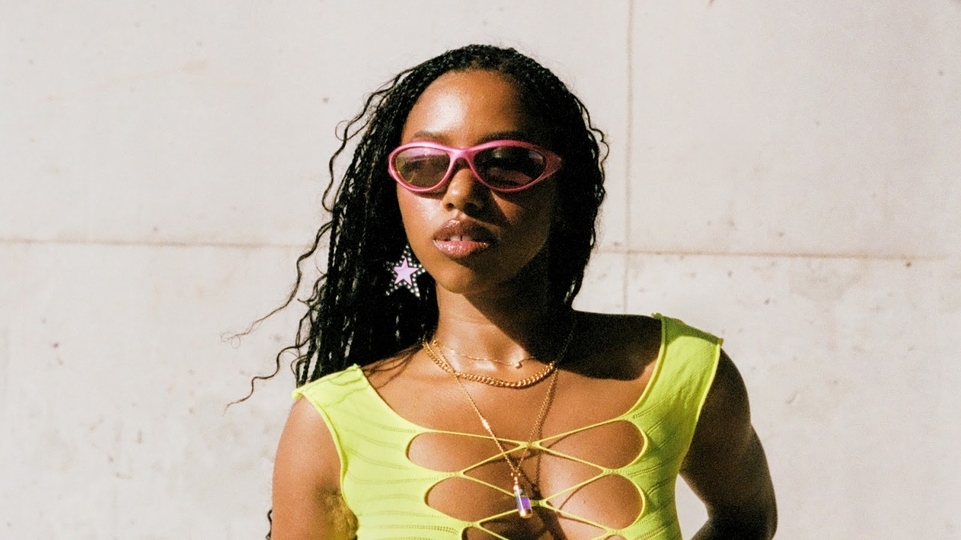
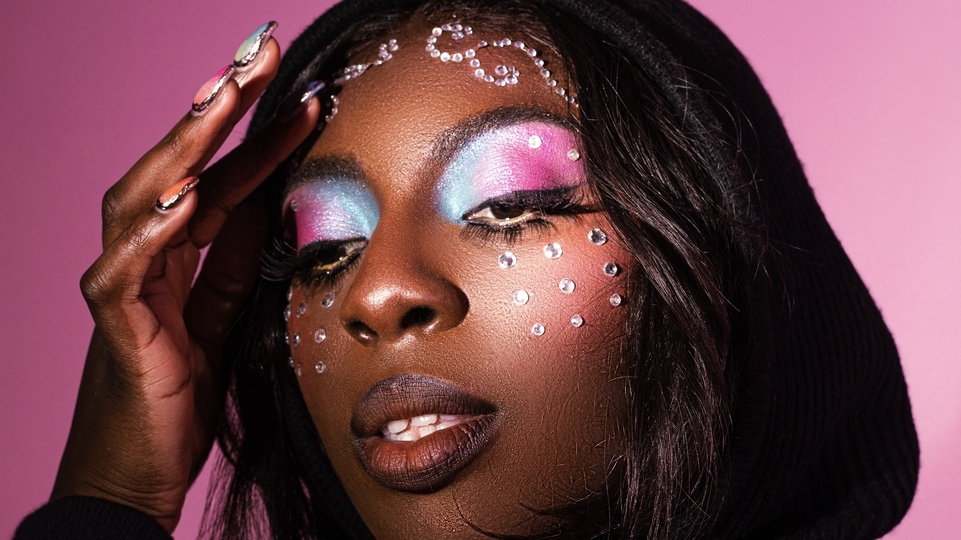
_0bccc.jpg)

